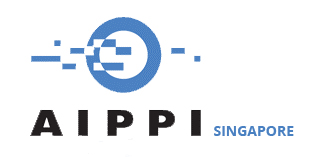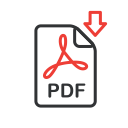Reports
AIPPI Singapore reports

* AIPPI-Singapore Reports are in ![]()
Adobe Acrobat Reader required.
Country reports
Questionnaires
TRIPS Declaration on the
TRIPS Agreement and Public Health
(“Doha Health Declaration”)
We have been asked to provide our views regarding paragraph 6 of the Doha Health Declaration on compulsory license in the pharmaceutical sector in WTO member countries with insufficient or no manufacturing capacities.
Background information
One of the key documents presently under consideration by the TRIPS Council and the WTO Bodies is the “Declaration on the TRIPS Agreement and Public Health” of November 14, 2001 (hereinafter the “Doha Health Declaration”) (WT/MIN(01)/DEC/W/2 – (01-5770)).
Paragraph 6 of the Doha Health Declaration relates to compulsory license in the pharmaceutical sector in WTO member countries with insufficient or no manufacturing capacities.
The concept is to permit WTO members with insufficient or no manufacturing capacities to grant compulsory licenses for the importation rather than local manufacture of relevant pharmaceutical products. On the other hand supplying members should be permitted to grant compulsory export licenses. It is hoped that in this way the countries in need for pharmaceutical products gain access to cheaper generic products produced abroad.
The economic relevance of the issue is disputed.
a) Importing Countries
Only in countries where there is patent protection may there be a need for a compulsory manufacturing or import license.
However, 49 of the least developed countries have been granted a respite for the protection of pharmaceutical products and the implementation and application of Sections 5 and 7 of Part II of the TRIPS Agreement until January 1, 2006 (Section 66.2 of the TRIPS Agreement).
This respite will be extended now for 10 further years until January 1, 2016. For 13 years to come the least developed countries will, therefore, not be bound to grant patent protection for pharmaceutical products and will not depend on compulsory licenses in the health sector.
b) Supplying (exporting) Countries
The idea is that upon request of importing countries with adequate manufacturing capacities should grant compulsory export licenses for export of pharmaceutical products to importing countries in need.
As the solution envisaged in paragraph 6 of the Doha Health Declaration is intended as a longer-term measure and affects basic principles of the TRIPS concept, it merits careful examination.
Doha Health Declaration
4 issues stand in the foreground
(1) How should the pharmaceutical products enjoying the benefit of privileged compulsory licensing be defined?
Should the benefit be limited to pharmaceutical drugs to fight epidemic diseases, should it extend to all pharmaceutical drugs or should it go even further and include such things as diagnostic or medical instruments?
*
(2) Which members of WTO should benefit from the right to grant compulsory import licenses and to request to other WTO members to grant compulsory export licenses for their benefit?
How should the term “insufficient or no manufacturing capacities” be defined?
*
(3) Should all or only certain WTO members be eligible to supply pharmaceutical products under compulsory export license?Should, for example, the importing country specify the source and may a compulsory export license only be granted upon receipt of a request of an eligible importing country?
*
(4) In what legal format should the privileged compulsory license be introduced:
• By way of interpretation of Article 30, or Article 31(f) of the TRIPS Agreement under Article IX of the Marrakesh Agreement?
• By way of waiver under Article IX of the Marrakesh Agreement?
• By way of an amendment of Article 30, or Article 31(f) of the TRIPS Agreement according to Article X of the WTO Agreement?
• Or by way of a moratorium on dispute settlement?
Doha Health Declaration
Articles 30 & 31 of the TRIPS Agreement
The implementation of paragraph 6 of the Doha Health Declaration may potentially lead to an amendment of the TRIPS Agreement.
It is therefore important and within the vocation of AIPPI to express an opinion on the scope of the privileged compulsory license.
It also may lie within the vocation of AIPPI to express an opinion on the question whether the introduction of a privileged compulsory licensing system should fall under Articles 30 or 31(f) of the TRIPS Agreement if either the route of interpretation or amendment are chosen.
Article 30 of the TRIPS Agreement deals with exceptions.
It may be argued that the privileged compulsory license is not an exception to the substance of the patent right. The exclusive right remains intact. Only the exercise is limited.
It may further be argued that an exception to the exclusive right may endanger the right to compensation and it may ultimately be argued that an exception under Article 30 for pharmaceutical products only is incompatible with the non-discrimination rule of Article 27, paragraph 1, of the TRIPS Agreement.
Article 31 deals with the use without authorization of the right holder.
It may be argued that Article 31(f) of the TRIPS Agreement is the proper place to deal with the issue.
It may further be argued that by allowing privileged compulsory licenses by interpretation or amendment of Article 31(f) of the TRIPS Agreement the crucial issue of re-exportation of pharmaceutical products from eligible importing countries may be covered as well.
Arguments in favour of a waiver under Article IX, paragraph 3, of the Marrakesh Agreement (rather than interpretation or amendment) are that a waiver would be limited in time and scope and may be more easily adapted to actual needs as they emerge.
It may be further argued that the waiver concept leaves the TRIPS Agreement intact. The risk of a precedent according to which obligations under the TRIPS Agreement may be waived without formal adaptation has, however, also to be considered. The three quarters majority requirement of Article IX of the Marrakesh Agreement sets limits to abuse.
Doha Health Declaration
Annexes
The Bureau of AIPPI have submitted for our consideration:
1. the Declaration on the TRIPS Agreement and Public Health (Doha Health Declaration) (WT/MIN(01)/DEC/W/2),
2. the text of Articles 27, 30 and 31 of the TRIPS Agreement,
3. the text of Articles IV, IX and X of the Marrakesh Agreement (Annex 1 to Enclosure 5),
4. proposals on paragraph 6 of the Doha Health Declaration of July 11, 2002 (IP/C/W/363 and IP/C/W/363/Corr.1),
5. proposals on paragraph 6 of the Doha Health Declaration of July 23, 2002 (IP/C/W/363/Add.1).
We have also been provided with a deadline of November 5, 2002.
Annexes
*Please right click to save the documents.


